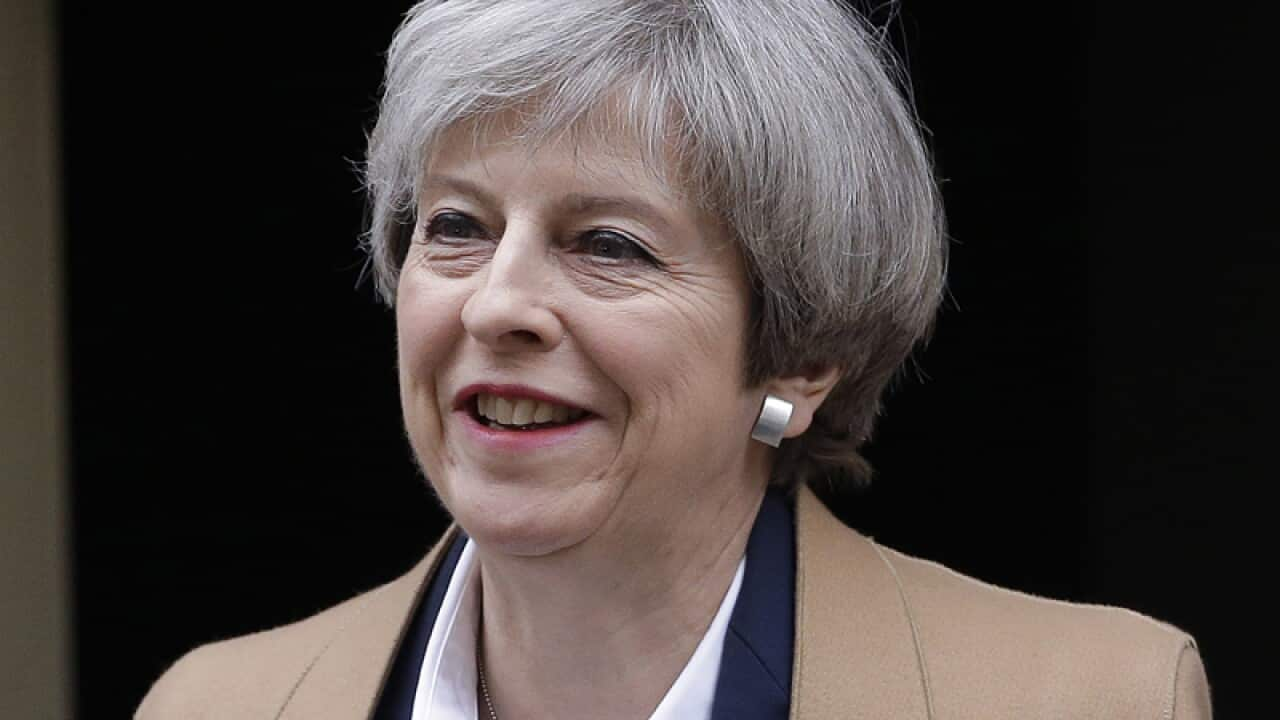Prime Minister Theresa May will take on her rival, Labour's Jeremy Corbyn, in the June 8 election, a vote that could set the tone for Brexit negotiations with the European Union.
Opinion polls show Ms May, from the ruling Conservative Party, ahead of Mr Corbyn following a month of campaigning, but the gap has narrowed in the past week.
While Labour and Conservatives are expected to retain the bulk of seats in parliament, dozens of smaller parties and independents will make a bid for a seat in the House of Commons.
Here’s what to expect.
How does it work?
General elections usually take place every five years in the UK but Prime Minister May surprised many by calling a ‘snap’ election in April, a move she said would strengthen her hand ahead of Brexit negotiations.
When polls open at 7am on June 8, voters in England, Scotland, Wales and Northern Ireland will have until 10pm to cast their ballot. They’ll choose from 3303 candidates standing in 650 parliamentary constituencies.
Britain’s general election uses a first-past-the-post system (FPP), which means whichever candidate receives the most votes is elected to represent their constituency.
The party with the greatest number of seats in parliament forms government and its leader becomes Prime Minister.
Failure to win an outright majority would leave Ms May and Mr Corbyn to form a minority coalition government.
Theresa May calls snap election
Who are the main parties?
The two main parties are Prime Minister May’s Conservatives and Mr Corbyn’s Labour Party. The Conservatives currently have 330 seats in parliament, and Labor 229.
Other parties with a significant parliamentary presence include the Scottish National Party (SNP), the Liberal Democrats and Northern Ireland’s Democratic Unionist.
The Green Party and the UK Independence Party (UKIP) will field the largest number of candidates outside Labour and the Conservatives.
Despite receiving nearly 13 per cent of the vote across the UK in the 2015 election, UKIP picked up just one parliamentary seat due to the FPP system.

Jeremy Corbyn on the campaign trail. Source: AAP
What are the key issues?
Immigration is one of the hot button issues of the election, an issue complicated by Bexit, the rights of EU citizens in the UK, and the European refugee crisis.
The Conservatives are seeking to slash the number of migrants entering the UK by tens of thousands, tighten rules around family sponsorship and increase a levy on businesses hiring foreign citizens.
Labour has not pledged to reduce migrant numbers, but has said it will put in place a new system based on the UK’s economic needs. The party has promised “fair immigration rules.”
It will reinstate a Migrant Impact Fund to support public services in communities which have seen an increase in immigrants.
The economy has also loomed large over the campaign. The Conservatives say their intention is to keep taxes for businesses and individuals as low as possible, increase the National Living Wage, and crack down on tax evasion.
Labour plan a radical change in the UK's fiscal policy: raising taxes on large firms and the wealthy to pay for higher public spending on education, healthcare and police. Mr Corbyn has also promised to re-nationalise certain industries.
Healthcare - including funding for the National Health Service (NHS) - education, defence and welfare have also featured prominently in the campaign.
May appeals to UK voters
What could the result mean for Brexit?
Formal talks on the UK's withdrawal are due to start on June 19, just 11 days after the general election.
Both the UK and the EU expect two years of difficult talks on everything from how much cash should be paid upon exit, to border arrangements for migrants, goods and services.
Prime Minister May has expressed her willingness to walk away from talks, warning that Brussels could seek to punish Britain to deter other EU states from leaving by taking a hardline stance.
But Mr Corbyn has insisted he would "make sure there's a deal" with the European Union were he to win.
Labour want tariff-free access to the single market and says it is open to remaining in the EU customs union, which sets tariffs on goods imported from outside the bloc.
The Conservatives will leave the customs union and seek a “comprehensive free trade deal” to replace single market access.
Neither party have released details of how they would manage migration after Brexit, but Labour has promised to guarantee the rights of EU citizens in the UK.
How is the UK going to leave the EU?
- With Reuters











